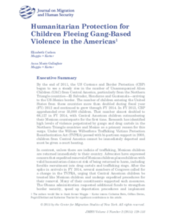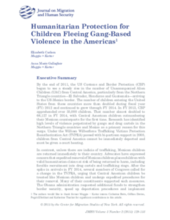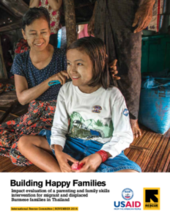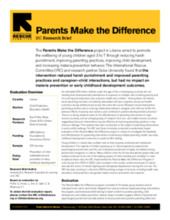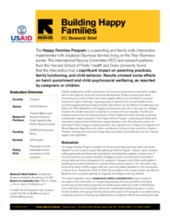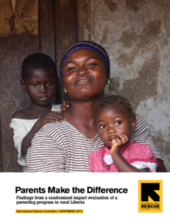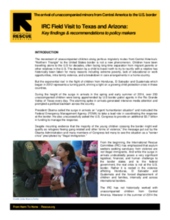Displaying 371 - 380 of 516
This paper provides an overview of the violence perpetrated by gangs and other criminal organizations in Mexico and Central America which compels many children to flee their communities. The paper also describes the US government’s obligations to protect unaccompanied children upon arrival, and good practices of other governments relating to the protection of child migrants and refugees.
This paper provides an overview of the violence perpetrated by gangs and other criminal organizations in Mexico and Central America which compels many children to flee their communities. The paper also describes the US government’s obligations to protect unaccompanied children upon arrival, and good practices of other governments relating to the protection of child migrants and refugees.
This paper identifies the challenges the OVC are experiencing in schools as absenteeism, lack of physical infrastructure, insecurity, psychological trauma, among others. The paper also proposes strategies and programmes that various stakeholders have, and should put in place to assist OVC.
This report presents findings from the impact evaluation of a parenting and family skills intervention for the displaced Burmese population in Thailand called the Happy Families Program which was implemented by the IRC from 2011 to 2013.
This research brief provides an overview of an impact evaluation of the “Parents Make the Difference” program, conducted by the International Rescue Committee (IRC) and research partners at Duke University. The “Parents Make the Difference” program is a parenting intervention aimed at promoting the well-being of children in post-conflict Liberia.
This research brief provides an overview of an impact evaluation of the “Happy Families Program,” conducted by the International Rescue Committee (IRC). The Happy Families Program is a parenting and family skills intervention designed for Burmese families living on the Thai-Burmese border.
This report presents the findings from an evaluation of the “Parents Make a Difference” program, conducted by the International Rescue Committee and research partners at Duke University. The Parents Make a Difference program is an intervention that serves families in post-conflict, Lofa County, Liberia.
This report, informed by a field study conducted by the International Rescue Committee, provides a summary of findings and presents recommendations aimed at helping policy makers to improve the current and future response to the arrival of unaccompanied children from Central America to the United States.
This article details the introduction of a livelihood project for unaccompanied children in the Dadaab refugee camp in Kenya, which aimed at strengthening the household economy of foster families and improving the care of fostered children.
This article argues that orphanage voluntourism fuels the displacement and trafficking of children from their families in Nepal and their unnecessary institutionalisation.

